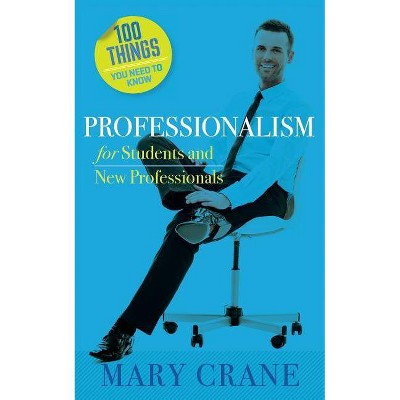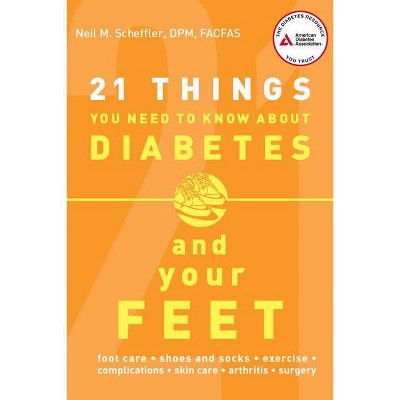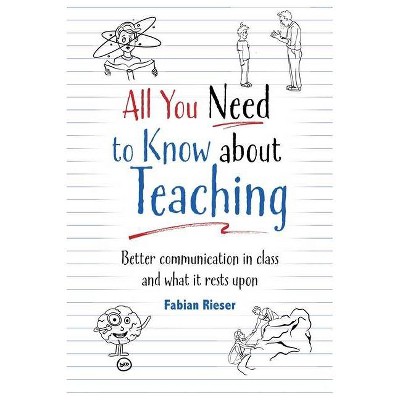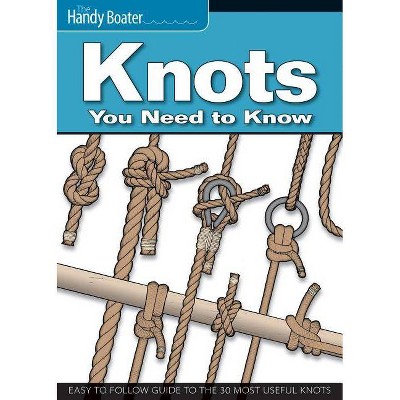5 Things You Need to Know about Social Skills Coaching - by Roya Ostovar & Kritsa Divittore (Paperback)
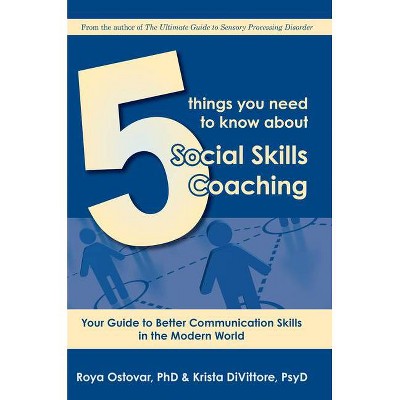
Similar Products
Products of same category from the store
AllProduct info
<p/><br></br><p><b> Book Synopsis </b></p></br></br>Improve Your Quality of Life with Social Skills Coaching Social language is much like any other language, and social language skills are like any other skills; they can be learned and improved with practice. If we think about the skills required for any sport, we know right away that the role of the coach is critical. The same is true for social language, the difference is that being coached on our social skills is new to us. This quick guide covers what social coaching is and how social skills coaching can be beneficial for anyone and lead them to a more fulfilling life. Some of the social skills addressed in this book are interpersonal skills, non-verbal communication, self awareness, creating positive and meaningful interactions with others, and more.<p/><br></br><p><b> Review Quotes </b></p></br></br><br>The wide-spread understanding is that socializing with others generally brings meaning and comfort to our lives. When our social skills are lacking, weak, or underdeveloped, we may not be able to fully engage with and appreciate our relationships with other people. So, how do we teach socializing and interpersonal connection, something intuitive to so many of us? The approaches do not always seem to fit the need. Most books on social skills training target the very young and school-age children and/or those who struggle significantly in this area and lack any social skills at all. The books are written in a language that is appropriate for these two groups only, often accompanied by simple cartoons, pictures, and drawings and thought or word bubbles, a format that may be experienced as condescending or disrespectful by many. The assignments, examples, and scenarios are also designed to address young children and those with significant social challenges. What I have found incredibly refreshing and different about 5 Things You Need to Know about Social Skills Coaching is that the content crosses all ages, stages, and abilities from a young school-age child who needs to learn basic greeting to an otherwise successful and highly educated adult who just wants to improve certain targeted social skills. Social skills groups often target young children and, more recently, teenagers, but what about young adults and adults continuing to struggle with day-to-day social interactions? Psychotherapy often targets the co-occurring issues that influence effective socialization and behavioral therapies are often limited to very basic skills learning. What about the individuals who never developed the skills of interpretation, integration, and inferencing, all critical in any social situation? What about making a connection between a nonverbal and verbal piece of information? There is a need for highly focused, individualized social skills coaching for those who are not receiving the support they need to develop very important skills to keep up with the complexities of social interactions. This easy-to-read guide provides a helpful overview of social skills coaching for a wide range of people who are entering into this conversation. Written by two psychologists who provide social skills coaching to a wide range of populations, Drs. Ostovar and DiVittore have provided a thoughtful and comprehensive perspective on the importance of developing skills at any time in your life, incorporating wisdom and knowledge from their experience providing coaching and therapy. They share what they have seen benefit so many individuals. In consulting and working with Dr. Ostovar for more than fifteen years, I have also seen this approach work for individuals with highly complex histories and presentations (including individuals diagnosed with nonverbal learning disorder and autism spectrum disorders), as well as individuals who are considered high-functioning and just need support in a specific set of skills. Because needs vary given the person's developmental level and where the person is in life, the individuality and customizability of social skills coaching provides the necessary level of support to identify what areas need attention. Among the best features of this book are the practical strategies that can be used within social skills coaching. Although many of us may incorporate these strategies into our life without even being aware of doing so, the way the authors explain their different strategies is relatable and approachable for individuals who may have to work harder at socializing. Most importantly, the authors emphasize an approach that treats the individual from a supportive and strengths-based approach. Instead of emphasizing what the individual is doing wrong or not doing at all, the authors provide the sense that social skills coaching is meant to work toward the individual's goal by further developing the skills the individual brings to the table. This allows the individual to feel empowered and confident to try socializing in a different way. The authors' description of coaching as similar to coaching in sports demonstrates the idea that the social skills coach is not there only to teach and for practice, but also to encourage self-awareness and reflect on the individual's progress. This well-written short guide is a wonderful resource for everyone, beginners and experts alike, exploring how to incorporate social skills coaching into their lives and practices. As you will learn throughout the easy-to-follow guide, this innovative approach to understanding and learning social skills coaching fills a gap in the current available resources on the topic. Blaise Aguirre, MD Medical Director 3East DBT-Continuum McLean Hospital Assistant Professor of Psychiatry Harvard Medical School Blaise Aguirre, MD, is an expert in child, adolescent, and adult psychotherapy, including dialectical behavior therapy (DBT) and medication evaluation and management. He is the founding medical director of the 3East Girls Intensive and Step-Down programs, unique, residential DBT programs for young women exhibiting self-endangering behaviors and borderline personality disorder (BPD) traits. Dr. Aguirre has been a staff psychiatrist at McLean Hospital since 2000 and is nationally and internationally recognized for his extensive work in the treatment of mood and personality disorders in adolescents. He lectures regularly in Europe, Africa, and the Middle East on BPD and DBT. Dr. Aguirre is the author of: Borderline Personality Disorder in Adolescents, Depression (Biographies of Disease) Mindfulness for Borderline Personality Disorder (co-author) Helping Your Troubled Teen<br>
Price History
Price Archive shows prices from various stores, lets you see history and find the cheapest. There is no actual sale on the website. For all support, inquiry and suggestion messages communication@pricearchive.us



